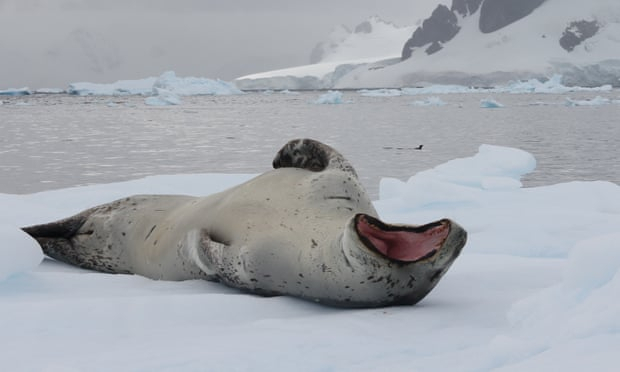Volunteers at the National Institute of Water and Atmospheric Research (Niwa) recovered the device while examining the animal’s frozen faeces – which had been sitting in a freezer for over a year.
It revealed a video shot by a kayaker paddling around Porpoise Bay in the Caitlins at the bottom of the South Island. The kayaker is not visible, but the tip of their blue kayak is, as well as footage of leopard seals playing in the cold coastal waters, including a mother and its pup.
Leopard seal scat is valuable to scientists because it holds a wealth of information about what the Antarctic predators eat, their general health and how long they have been in New Zealand waters.
Around the country, volunteers comb the coastline collecting it for marine biologists, in a bid to learn more about the rare animals, which usually live and hunt in packs in Antarctic waters, but are increasingly heading north to New Zealand, puzzling experts.
New Zealanders are also requested to report all sightings of the animals, document their location with videos and photographs, and call a dedicated leopard seal hotline.
“It is very worrying that these amazing Antarctic animals have plastic like this inside them,” said Jodie Warren, a volunteer who was working in the lab of marine biologist Dr Krista Hupman when she recovered the USB stick.
Warren left the stick to dry for weeks, curious to see if any data could be recovered.
The research team are keen to find the owner of the USB stick – and recruit the keen seal watcher to their volunteer army combing the beaches for “golden” poo.
A spokesperson for Niwa said there are been “no serious leads yet” on finding the owner, but it would keep trying.
More about: #NewZealand
















































